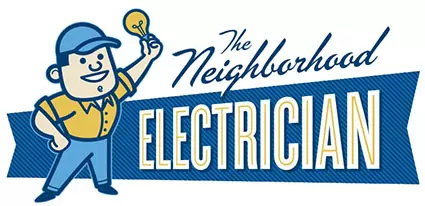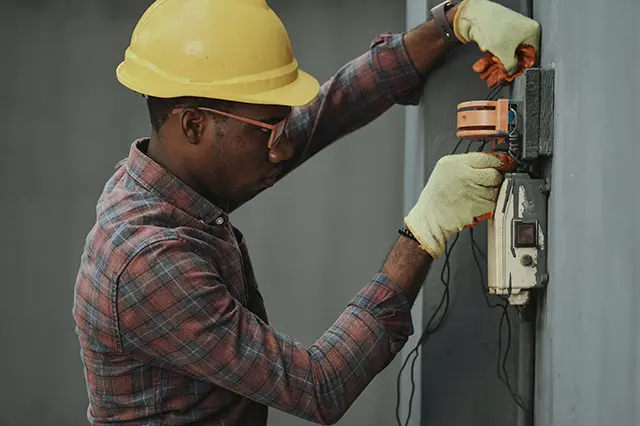What Every Homeowner Should Know About Electrical Repairs: A Comprehensive Guide
When it comes to home repairs, electrical repairs can often be the most intimidating. It’s understandable—with all of the wires, circuits, and other unknown components involved in maintaining a safe, working environment with electricity, it’s no surprise that homeowners can feel overwhelmed when tackling a repair. However, while you may not need to be an expert electrician to understand how electricity works and how to make basic repairs, there are some essential things that every homeowner should know about electrical repairs. This comprehensive guide covers everything from understanding your home’s wiring system and identifying potential issues to hiring a professional and doing the necessary maintenance yourself. We’ll provide you with all the information you need so that you can be prepared for any eventuality when it comes to making electrical repairs in your home.
What are the most common electrical problems?
There are a few electrical problems that are more common than others. These include:
1. Outlets not working – This is often caused by a loose wire or a tripped circuit breaker.
2. Lights flickering – This can be caused by a loose connection, a bad switch, or a faulty light bulb.
3. Circuit breakers tripping – This can be caused by overloaded circuits, faulty wiring, or damaged appliances.
4. Sparks coming from outlets – This is usually caused by loose wires or worn out outlets.
5. Power outages – This can be caused by a power surge or an overloaded circuit.
6. Dead outlets – This can be caused by a combination of bad wiring and worn out outlets.
7. Electrical shocks – This can be caused by loose wires, faulty wiring, or damaged insulation.
8. Poor lighting – This can be caused by bad wiring, a bad switch, or a faulty light bulb.
9. Circuit breakers not resetting – This can be caused by a short circuit or faulty wiring.
10. Dim lights – This can be caused by a bad switch, an outdated light bulb, or a faulty connection.
These are some of the most common electrical problems that can occur in a home. If you experience any of these issues, it is important to contact a licensed electrician for help.
How can I prevent electrical problems?
Electrical problems can be prevented by following some simple tips:
-Inspect your electrical cords and outlets regularly. If you see any frayed or damaged wires, replace them immediately.
-Don’t overload your outlets. If you need to plug in multiple devices, use a power strip with built-in circuit protection.
-Be careful when using extension cords. Don’t overload them and make sure they are rated for the wattage of the devices you’re plugging in.
-Never use bare wires or connect two wires together without using a wire nut. This could create a dangerous electrical hazard.
-Have your home’s electrical system inspected by a licensed professional every few years. This will help ensure that everything is in good working order and identify any potential problems before they become serious.
-Never attempt to repair or replace electrical components yourself. This is a job for a professional electrician.
-Unplug electronics when not in use to avoid wasting energy and to reduce the chances of a potential electrical fire.
By following these tips, you can help keep your home safe and free from electrical problems.
How do I know when I need to call an electrician?
If you experience any of the following issues, it’s time to call an electrician:
1. Frequent power outages: If your home experiences frequent power outages, it could be a sign of faulty wiring.
2. Flickering or dimming lights: If your lights are flickering or dimming, it could be a sign of loose connections or overloaded circuits.
3. Outlets that spark or emit smoke: Any outlets that spark or emit smoke should be immediately shut off and reported to an electrician. This is a serious safety hazard.
4. Frequent tripped circuit breakers: If your circuit breaker is tripping frequently, it could be a sign of overloaded circuits or faulty wiring.
5. Electrical shocks: If you’re experiencing electrical shocks when touching certain appliances or outlets, it’s definitely time to call an electrician.
6. Burning smells: If you smell burning coming from your outlets or appliances, this is also a serious safety hazard that should be reported to an electrician immediately.
7. Old wiring: If your home is older than 20 years, it could be time to call an electrician to inspect the wiring and make sure it’s up-to-date with current safety standards.
8. New appliances: If you’re installing new appliances or other electrical devices, it’s best to call a qualified electrician to make sure the wiring is done properly.
9. DIY projects gone wrong: If you attempted a DIY electrical project and it didn’t work out, it’s time to call an electrician to fix the problem.
10. Unusual sounds: If you hear unusual crackling, buzzing, or humming noises coming from your outlets or appliances, it could be a sign of faulty wiring and should be reported to an electrician immediately.
Remember, if in doubt, it’s always best to call a qualified electrician to inspect your home’s wiring.
What are some simple electrical repairs I can do myself?
As a homeowner, you are responsible for the maintenance and repair of your home’s electrical system. While some electrical repairs are best left to the professionals, there are many simple repairs that you can do yourself.
Here are some simple electrical repairs that you can do yourself:
1. Replacing a light switch is a relatively easy repair that anyone can do. Simply turn off the power to the switch at your circuit breaker or fuse box, remove the old switch, connect the wires to the new switch, and screw the new switch into place.
2. If a light fixture isn’t working, first check to make sure that the bulb is screwed in tightly. If it is, then the problem may be with the wiring. Turn off the power to the fixture at your circuit breaker or fuse box and then unscrew the plate that covers the wires. Check to make sure that all of the wires are securely connected and then screw the plate back on. Once you have turned the power back on, test out the fixture to see if it is working properly.
3. GFI outlets are designed to protect you from electrocution by automatically shutting off power when there is an imbalance in current flow. If an outlet stops working, it may be due to a tripped GFI outlet. To reset a tripped GFI outlet, simply press the “reset” button located on the outlet itself. You may need to press this button more than once to reset the outlet.
4. If your outlets or switches are loose, this can be an easy fix. Remove the screws that hold the plates on and then use a screwdriver to tighten the screws that hold the outlet or switch in place.
5. Replacing a light fixture is also relatively easy and straightforward. Turn off the power to the fixture at your circuit breaker or fuse box and then unscrew the plate that covers the wires. Disconnect all of the wires from the existing light fixture, connect them to your new light fixture, and then screw it into place. Once you have turned the power back on, you can test out your new light fixture.
These are just a few of the many simple electrical repairs that you can do yourself. If you ever find yourself in a situation where you don’t feel comfortable making an electrical repair, it is always best to call in a professional.
What are some more complex electrical repairs that should be left to a professional?
When it comes to electrical repairs, some are more complex than others and should be left to a professional. These include repairs that involve the electrical panel, wiring, outlets, and switches. If you’re not sure how to handle a repair, it’s always best to call an electrician.
Conclusion
The bottom line is that electrical repairs are no joke, and it’s important to know the basics before you get started. We hope this guide has been helpful in providing all the necessary information you need on electrical repairs so that you can make informed decisions when tackling any issue related to your home’s electrical system. If done correctly and safely, electrical maintenance can be a breeze – just remember to stay safe and always consult with a professional if needed!

